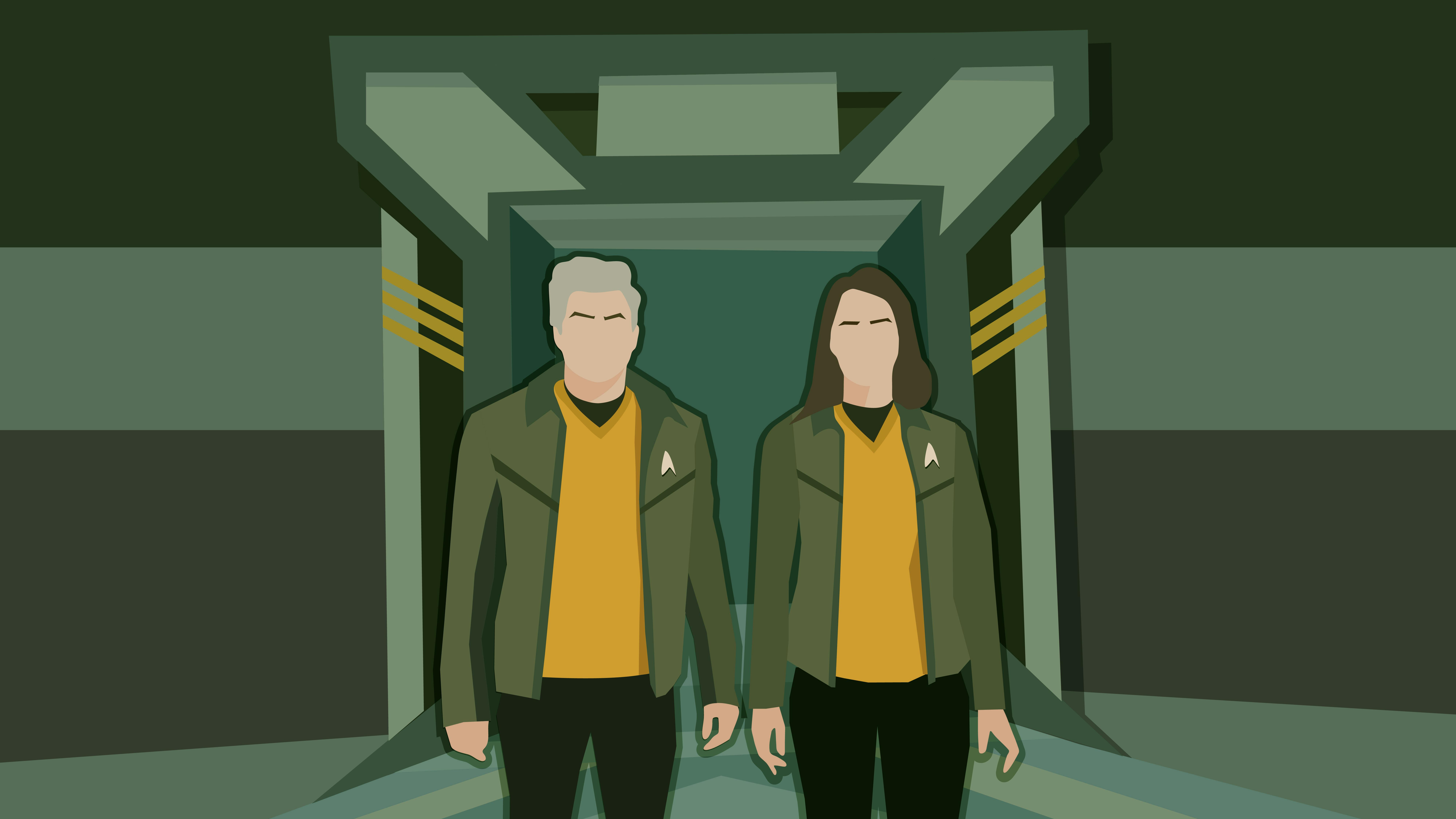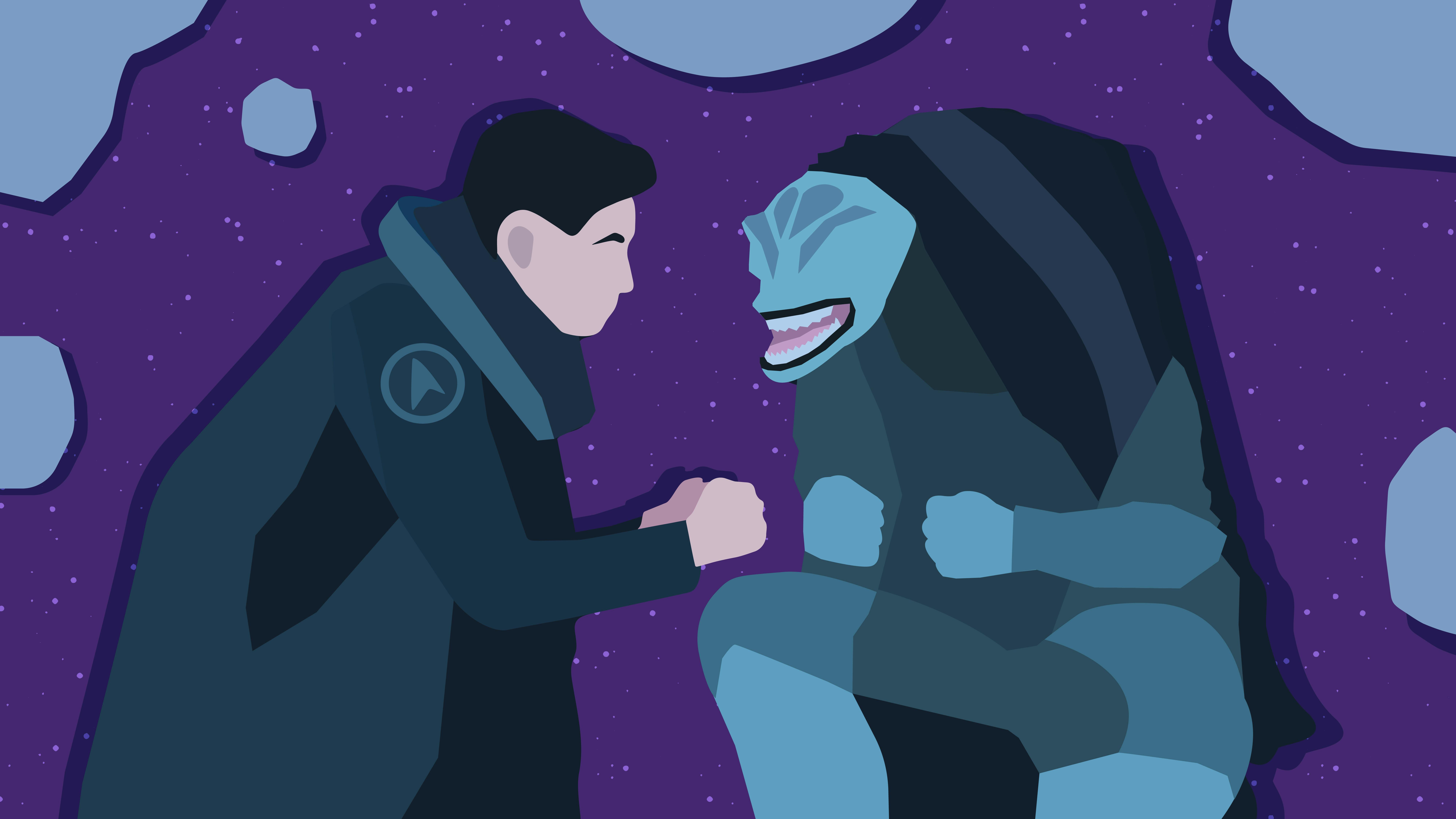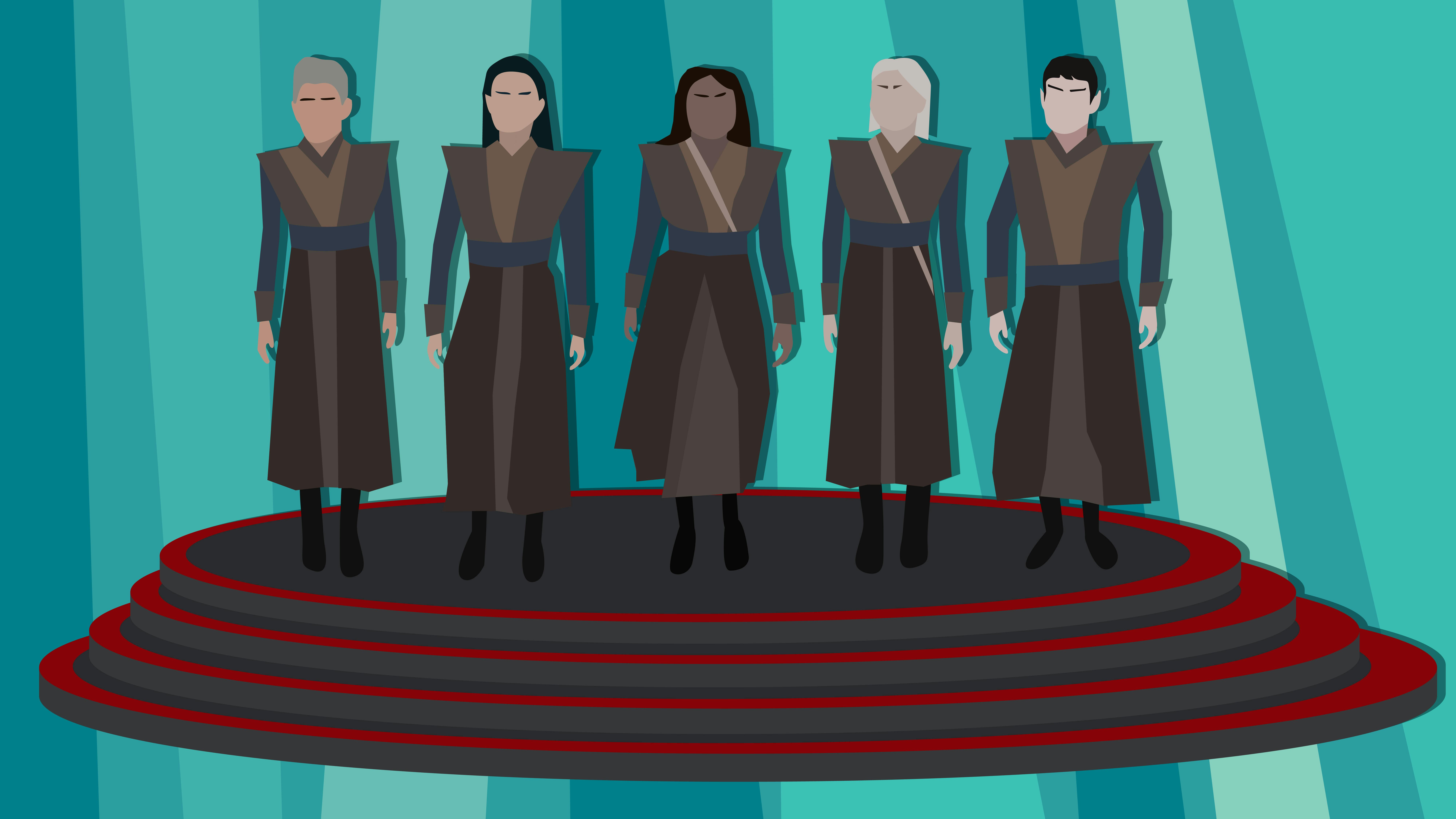Published Mar 20, 2024
The Trial Never Ends: Q’s Approach to Advocacy
'The Continuum didn't think you had it in you, Jean-Luc. But I did.'
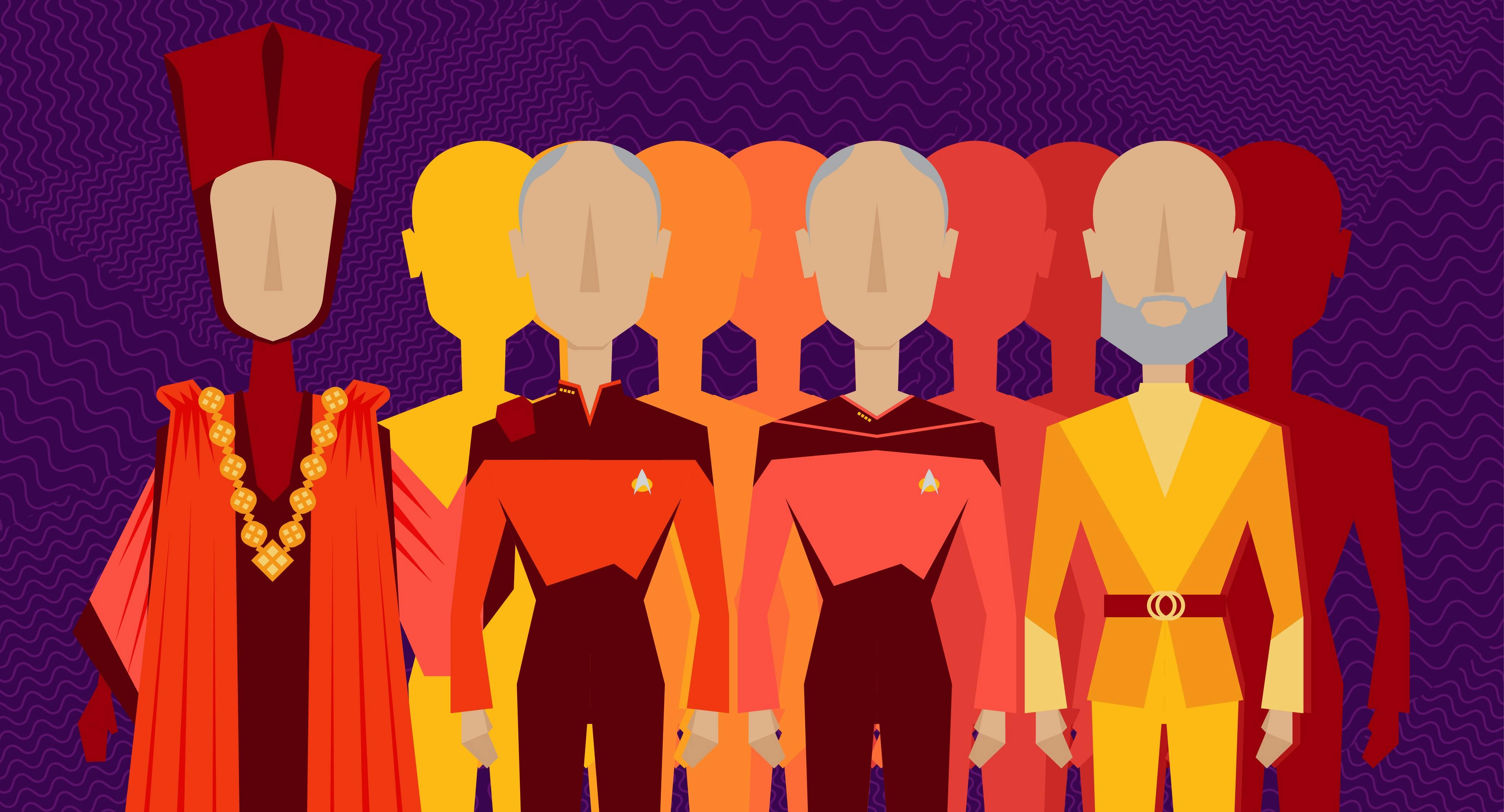
StarTrek.com
In 's "," Picard returns to the Continuum’s courtroom, no longer allowed to mount a defense. The trial has concluded, and in the Continuum’s view, humanity’s "savage, dangerous child-race" tendencies will ultimately contribute to the universe in ways deemed inferior. Because of this, the human race is to be denied existence.
As the self-appointed "moral guardians" of the universe, there is a reputation of arrogance behind the mystery of the Continuum. For the Enterprise crew, the singular Q they know has exercised this moral superiority at their expense, and at times even with a sting of malevolence.
But by the time we reach "All Good Things…," there is now a curious inference of human benevolence behind Q’s arrogant display. In the proceedings, there is something he’d like to add, in the zeal only he can provide.
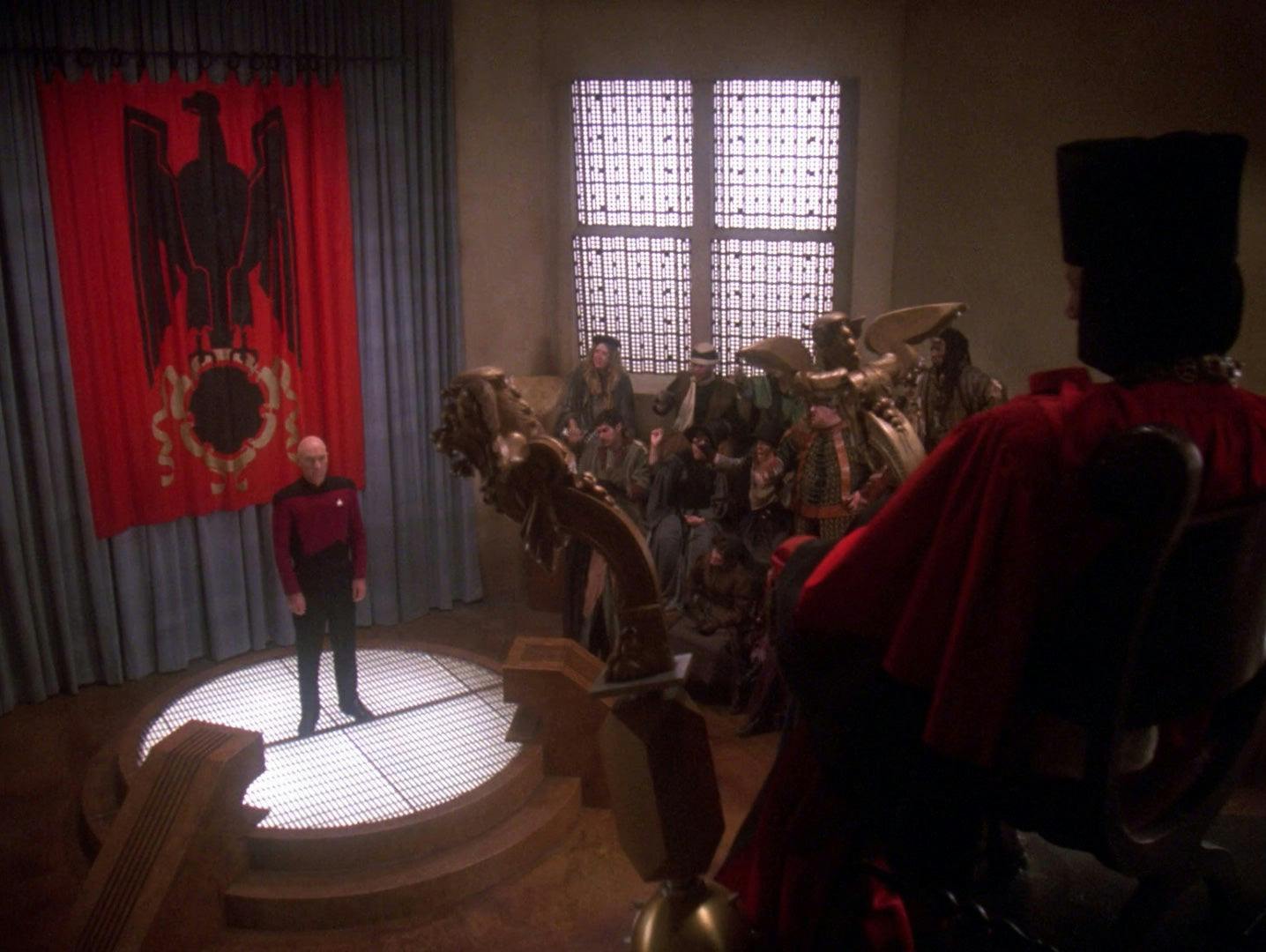
"All Good Things..."
StarTrek.com
Though not immediately apparent, Q takes it upon himself to be humanity’s advocate. Though his style is distinctly "Continuum," in spirit, it draws from a particular reference in human literature, one given to him by Picard. In providing the opportunity to apply it to Picard’s own history, he subjects the Continuum to the key — the gravamen — of humanity’s potential, which, as Q has hinted a before, is something the Continuum is blind to.
"What have we seen?" Q asks at the start. "You spending time worrying about Commander Riker's career, listening to Counselor Troi's pedantic psychobabble, indulging Data in his witless exploration of humanity."
The words hardly present human interactions in a positive light. They are delivered more like a list of the things which have inhibited "some growth, some indication that your minds have room for expansion."
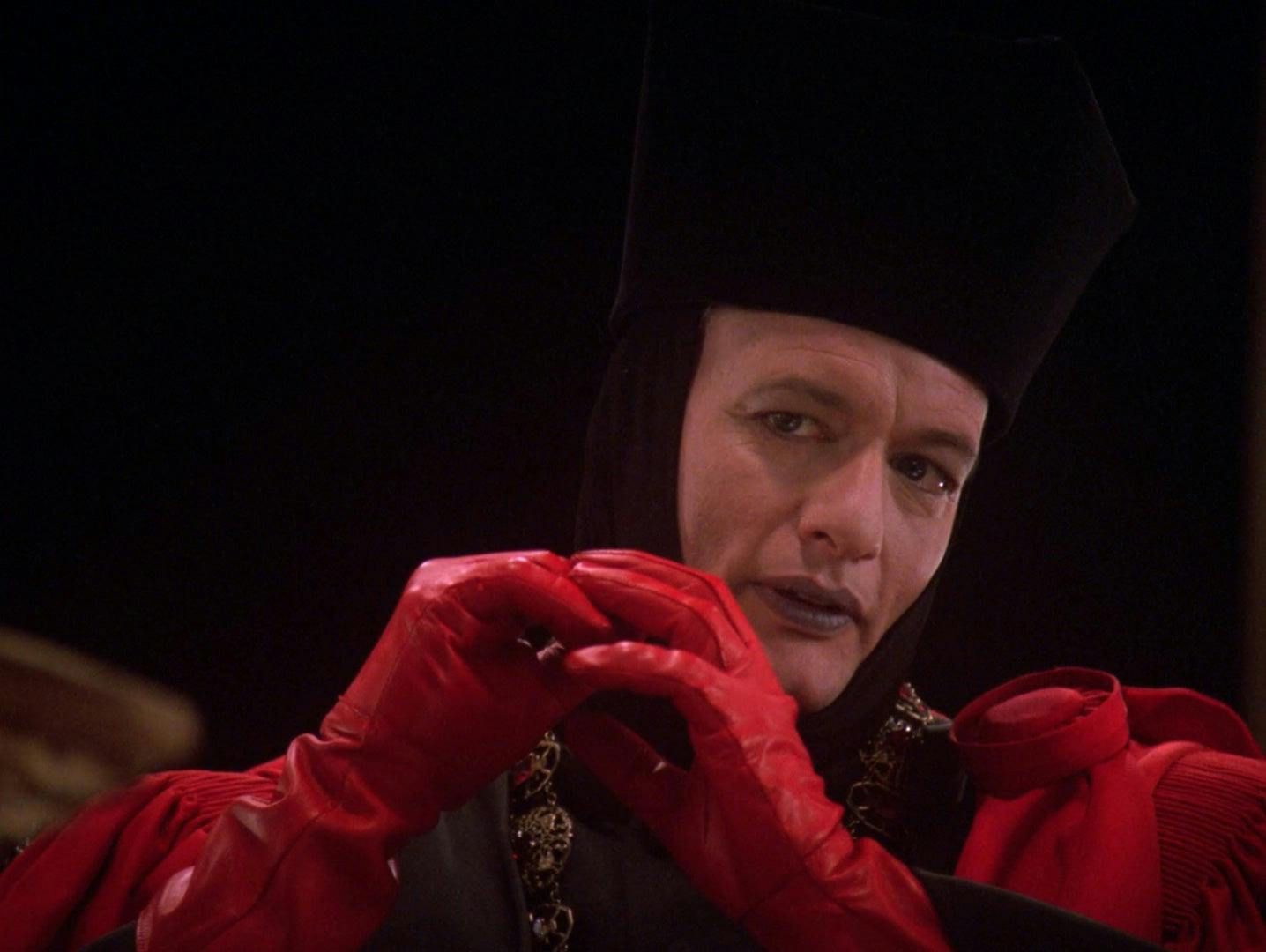
"All Good Things..."
StarTrek.com
But as an advocate standing before a jury knows, captivating those who make the decision is important in achieving the desired result. We have seen how members of the Continuum talk to each other — sardonic language is what fellow Q find engaging, as seen in "" Thus, we can reasonably assume that the Continuum warms to his style of delivery, and even find the statement agreeable. But the points he brings up also provide a backdoor means for setting out humanity’s case; through the above, Q-as-advocate strategically sneaks in his opening statement.
Separating the tone from the points, we are left with the question of whether concerns on Riker’s career, valuing Troi’s counsel, and helping Data's explorations are worthy exercises to invest in.
Consider how Picard describes what he believes humanity will one day become in "," via a line from Shakespeare's Hamlet, "How noble in reason! How infinite in faculty. In form, in moving, how express and admirable. In action, how like an angel. In apprehension, how like a god." Those words shook Q then, and since that day, Q has perhaps looked for the avenues in which they would apply.
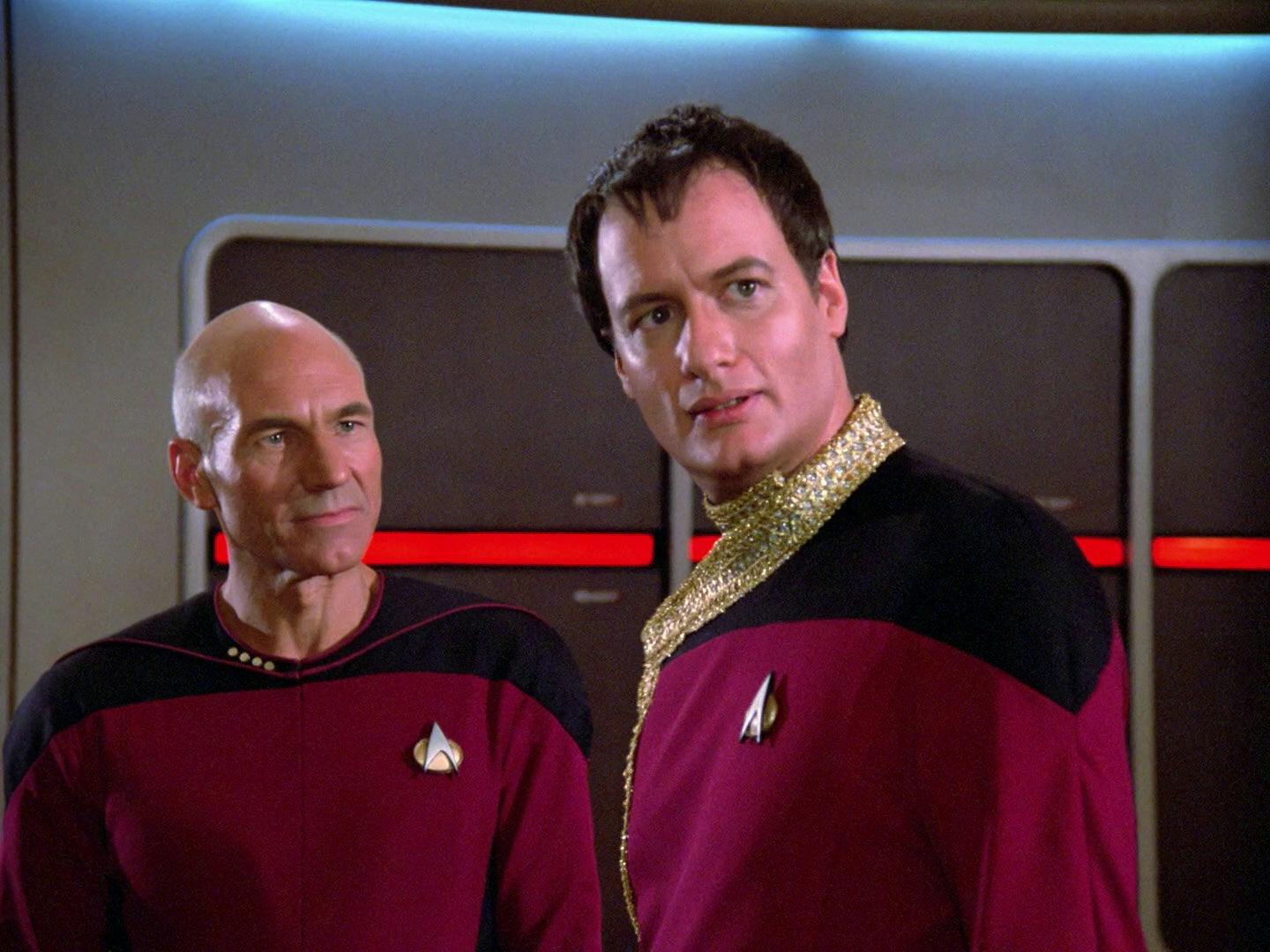
"Hide and Q"
StarTrek.com
"What he said in irony, I say with conviction," Picard told him back then. Through Q’s opening statement, he seems to be playing the reverse. What Picard said with conviction, Q presents with a sense of irony; in that the exercises which the Continuum regard as inhibitors are actually the factors which motivate the growth and expansion criteria they sought.
Through Q's time-shifting, Picard is offered the chance to deliver 'testimony’ to that effect. Consider the following —
Career conversations between Riker and Picard resonate in the future of Admiral Riker. Part of the reason why a noble loyalty exists for his former captain stem from conversations in "," "," and "." For the future Riker, these cannot easily be dismissed. As such, despite whatever reservations he has on Picard's claims, at a critical moment, he arrives to provide the resources that Picard can no longer command.
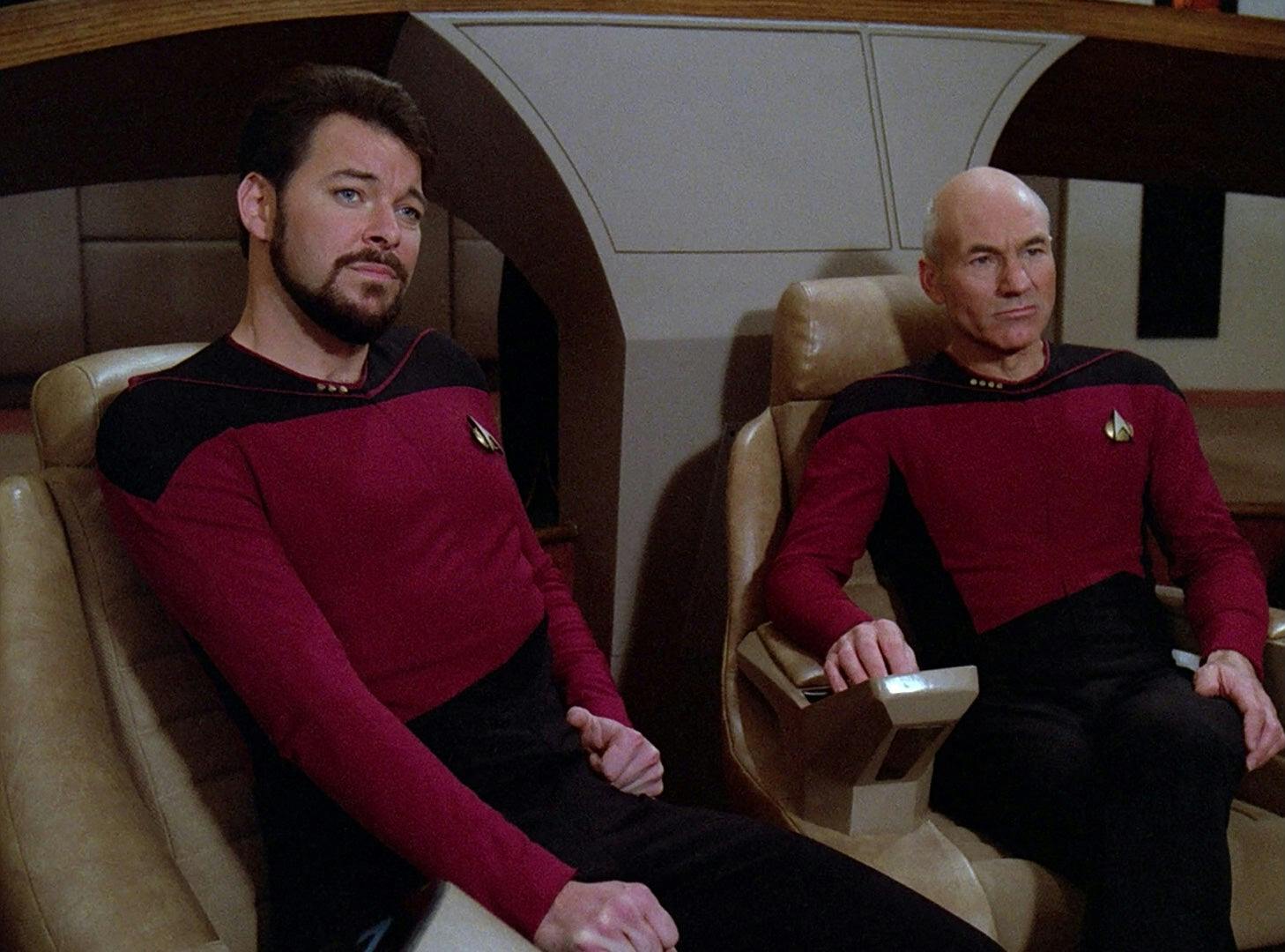
"The Icarus Factor"
StarTrek.com
Troi’s counsel over the years resonate in the faculties by which Picard motivates the crew of the past. Her advice in post-crisis situations during "," "," and "" have taught Picard how to recognize moments where lowering his emotional guard can help rather than hinder.
Thus, in the pivotal moment where his orders are questioned, Picard offers a vulnerability he would not have considered in his early days, asking the crew to "make a leap of faith and trust me," convincing them to continue.
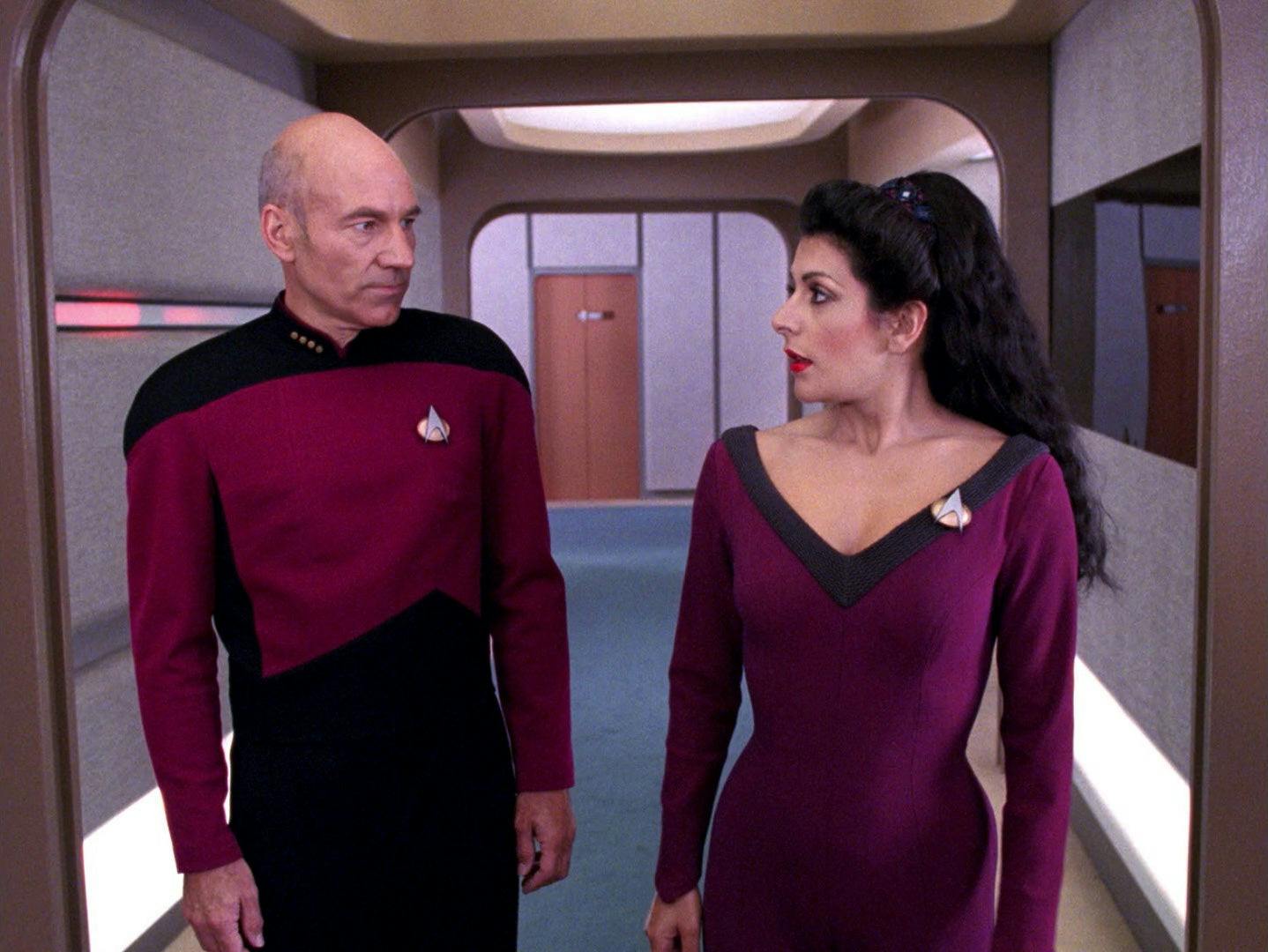
"The Bonding"
StarTrek.com
The Continuum might find some counter argument through Data. Picard indulging the android's human explorations may have encouraged him to indulge Picard in return, which leads to gaining passage on the U.S.S. Pasteur and initiating the inverted tachyon pulse — key elements in causing the detrimental anomaly.
We have seen how Picard motivates Data's understanding of imagination and camaraderie, through his evaluation of Data's performance as Scrooge in "," and in the choice of scene from the play Henry V in "." From those, it can also be argued that when future Data considers how Picard's claims might actually be true, he is exercising that sense of imagination, and in supporting Picard, he is delivering that sense of camaraderie.
Indeed, from the outcome Data proves to be an effective translator for Picard, expressing the concepts that might otherwise would have been dismissed as rants. His effort is essential in calling the old crew to action and devising the solution of creating a static warp shell. How can this emulation of human empathy be considered anything other than admirable?
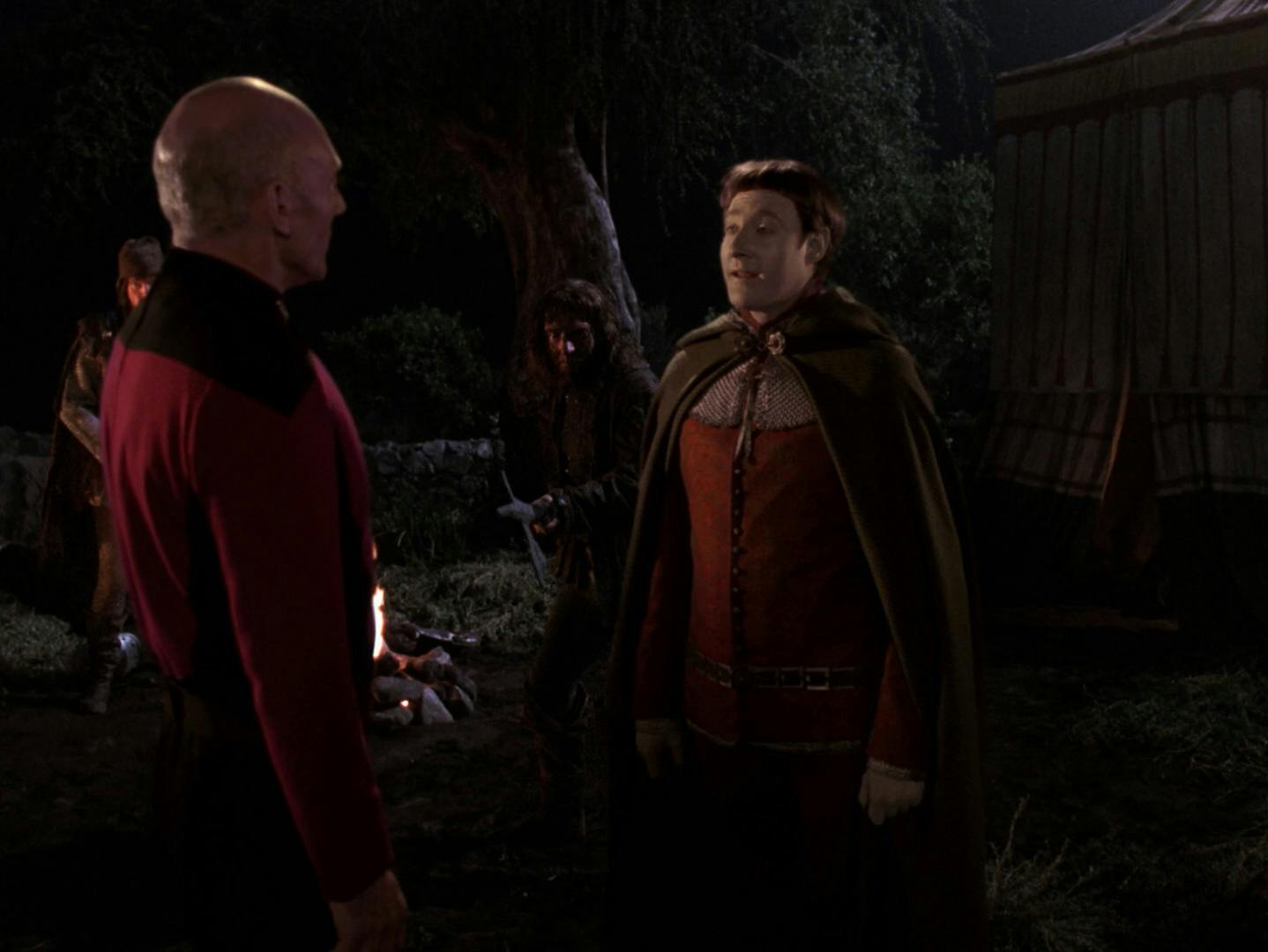
"The Defector"
StarTrek.com
The coordination of the Enterprise's crews across space and time would not have been possible without a legacy of shared experiences to draw from. The strongest example of this legacy is demonstrated in the present. Here the relationships are no longer new, and also not yet weathered by distance; the ties that bind have formed a strong sense of familial community. Here, the crew never once questions Picard's claims of time-shifting; they are invested in him without reservation, in large part because of how much he has invested in them. While the Continuum might have considered this bonding to be a waste of effort, looking at how the history of it plays out proves otherwise.
From all this, the Continuum is made to observe how the evidence — those "inferior" elements of career concerns, psychobabble, witless exploration, and more — can lead human apprehension towards the "unknowable possibilities of existence" that humanity is presumed to be less capable of, causing the delivery of their sentence to fail in execution and justification.

"All Good Things..."
StarTrek.com
The value of this may have been something that was not immediately apparent to Picard himself. At the start of sentencing, Q was disappointed when Picard tried to argue humanity's worth in how they have "journeyed to countless new worlds, made contact with new species, expanded man’s understanding of the universe." To a species that can see everything from the Schrödinger-possible to the quantum-locked, it would be an error to consider these things as permanent. Viewed at a scale in billions of years, they are material gains that ultimately come and go, however positive they might be.
The time shifting helped Picard to realize that humanity's potential is not measured in the quantity of tangible gains. In exploring existence, "All good things must come to an end," but the ideations learned and passed down from them endure.
As to whether humanity's ideations will ultimately prove positive, Q hints, "The Continuum didn’t think you had it in you, Jean-Luc. But I did.”
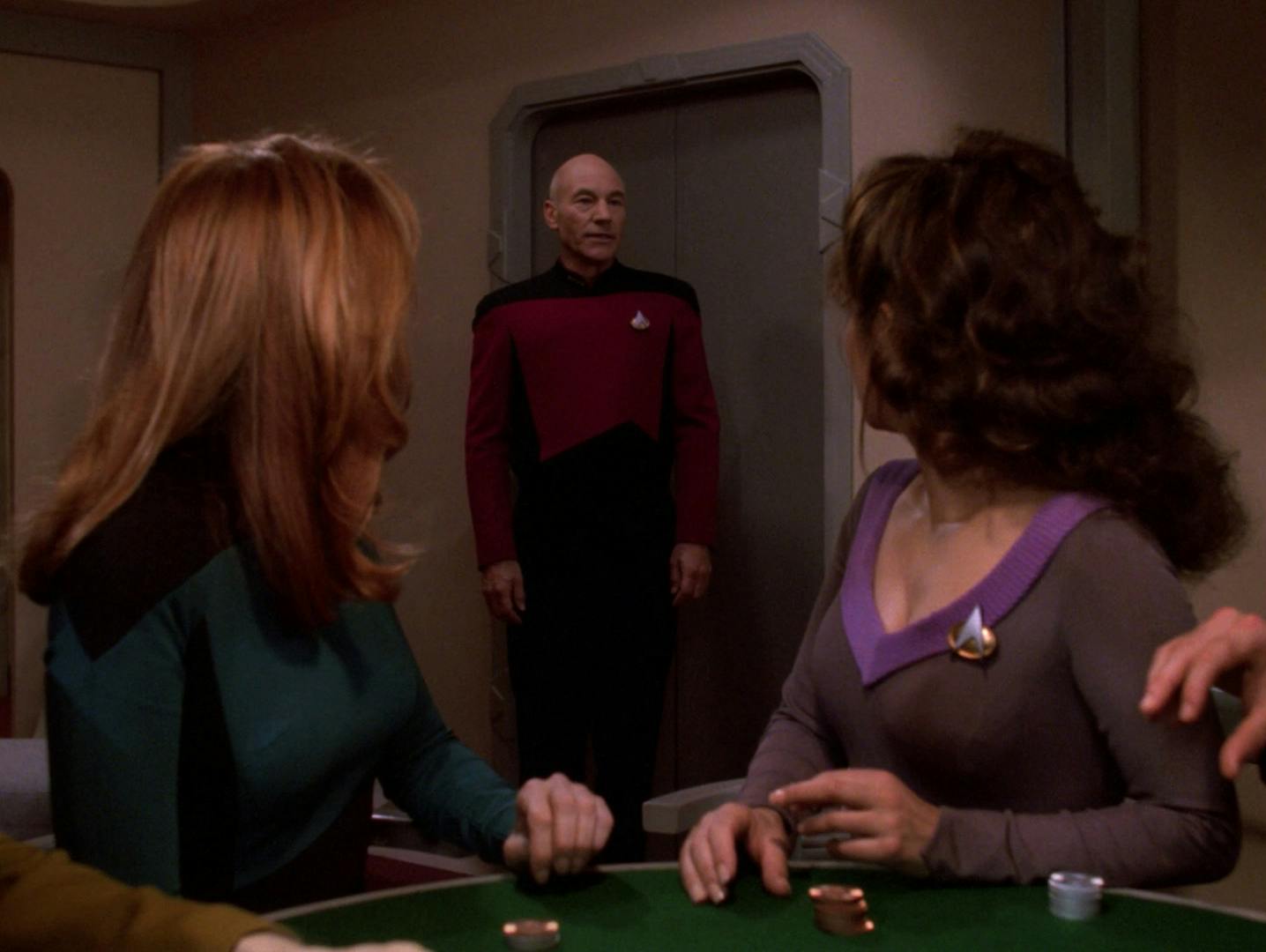
"All Good Things..."
StarTrek.com
Roddenberry’s vision of the 24th Century can seem difficult to aspire to. And even in-universe, the example set out by the crew of the Enterprise-D was especially rare.
The Next Generation’s 178 episodes applied principles we know to be familiar, but difficult to live by. Ethical issues were examined with fairness and reason. Crises were engaged with inventive ingenuity. Interpersonal dilemmas were resolved by separating the people from the problem.
Exploring the unknown can bring complications that are complex and unfamiliar, yet The Next Generation’s paradigm made them feel surmountable. Their paradigm also acknowledged human history for all its faults and folly, and proclaimed that the means ,by which this future lives, were borne from the lessons of those mistakes. Viewed as a whole, the series made their efforts feel like an achievable standard that we can hope to one day achieve.
In choosing one human to be humanity's representative, Q’s approach hints that an aspiration towards Roddenberry’s future might start with the individual. From how one’s effort might pay it forward in ways great and small, humanity can come to earn the finale’s final line, "The sky’s the limit."

